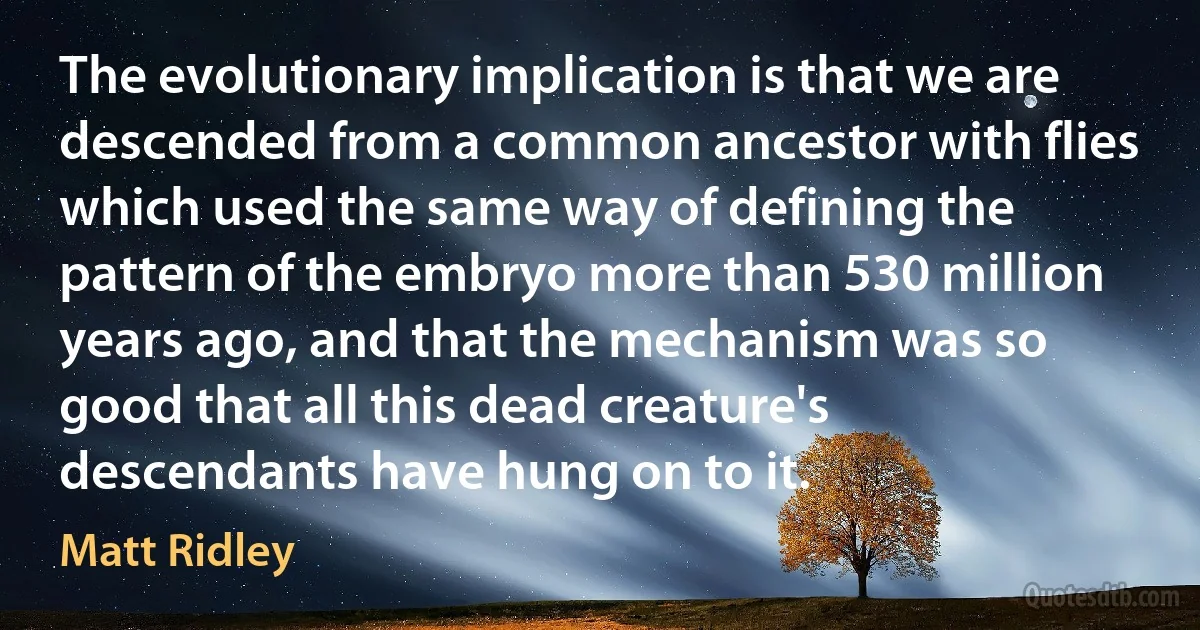Matt Ridley quotes - page 4
The question is not whether nurture has a role to play, because nobody of any sense has ever gone on record as denying that it does, but whether nature has a role to play at all. When my one-year-old daughter discovered a plastic baby in a toy pram one day while I was writing this chapter, she let out the kinds of delighted squeals that her brother had reserved at the same age for passing tractors. Like many parents, I found it hard to believe that this was purely because of some unconscious social conditioning that we had imposed. Boys and girls have systematically different interests from the very beginning of autonomous behaviour.

Matt Ridley
The story of p53 and the oncogenes, like much of my book, challenges the argument that genetic research is necessarily dangerous and should be curtailed. The story also strongly challenges the view that ‘reductionist' science, which takes systems apart to understand them, is flawed and futile. Oncology, the medical study of whole cancers, diligent, brilliant and massively endowed though it was, achieved terribly little in comparison with what has already been achieved in a few years by a reductionist, genetic approach.

Matt Ridley
Culture is transmitted autonomously from each children's peer group to the next and not from parent to child-which is why, for example, the move towards greater adult sexual equality has had zero effect on willing sexual segregation in the playground. As every parent knows, children prefer to imitate peers than parents. Psychology, like sociology and anthropology, has been dominated by those with a strong antipathy to genetic explanations; it can no longer sustain such ignorance.

Matt Ridley
Rational optimism holds that the world will pull out of the current crisis because of the way that markets in goods, services and ideas allow human beings to exchange and specialise honestly for the betterment of all. So this is not a book of unthinking praise or condemnation of all markets, but it is an inquiry into how the market process of exchange and specialisation is older and fairer than many think and gives a vast reason for optimism about the future of the human race. Above all, it is a book about the benefits of change. I find that my disagreement is mostly with reactionaries of all political colours: blue ones who dislike cultural change, red ones who dislike economic change and green ones who dislike technological change.

Matt Ridley

